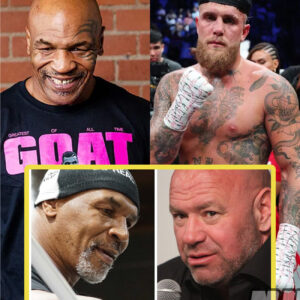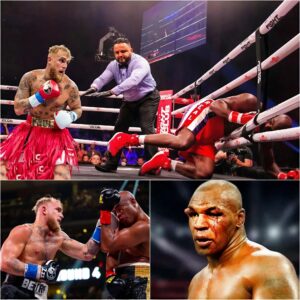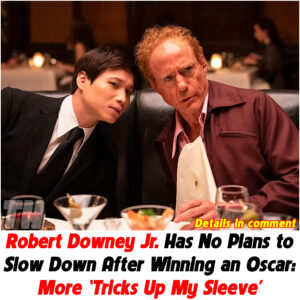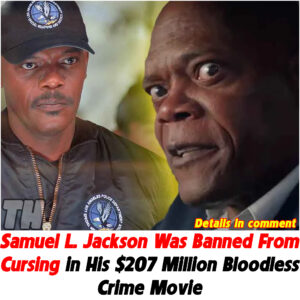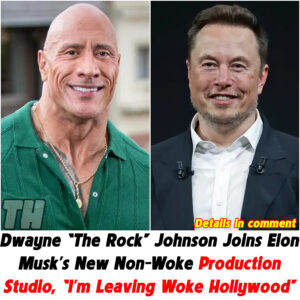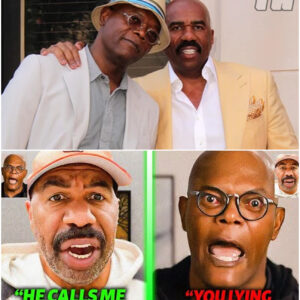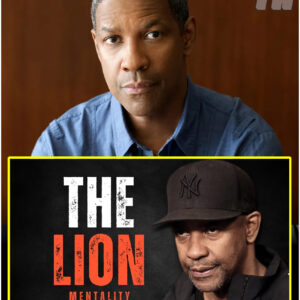**Diddy Faces Mounting Allegations in Ongoing Legal Saga: A Deep Dive**
In the latest twist of the ongoing legal saga surrounding music mogul Diddy, new allegations have emerged, shedding light on a troubling narrative of abuse, exploitation, and corruption within the entertainment industry.
The lawsuits, filed by producer Rodney Jones, known as Lil Rod, have sent shockwaves through the music world, implicating Diddy in a web of illegal activities, including sexual assault, trafficking, and intimidation.

The lawsuits detail a pattern of behavior allegedly exhibited by Diddy, where he would make unwanted advances towards individuals, coerce them into compromising situations, and use his influence to cover up his misdeeds.
According to Jones’ lawsuit, Diddy engaged in a range of criminal activities under the guise of his music empire, including trafficking, drug possession, illegal firearms ownership, and providing alcohol to minors.
One of the most shocking revelations from the lawsuit is the implication of Diddy’s son, Christian Combs, in the alleged misconduct.
Jones claims that Christian Combs was involved in drugging and taking advantage of women, further implicating other individuals, including young Miami’s cousin, Kuba Gooden Jr., and Diddy’s other son, Justin Combs. These allegations paint a disturbing picture of a culture of exploitation and abuse within Diddy’s inner circle.
Furthermore, the lawsuit alleges that Diddy attempted to groom Jones into engaging in sexual acts with him, using promises of career advancement and threats of violence to coerce compliance.
Jones recounts instances where Diddy brandished weapons, bragged about having law enforcement under his control, and boasted about his ability to silence dissent through intimidation.
Perhaps the most chilling aspect of the lawsuit is Jones’ claim that Diddy confessed to orchestrating a nightclub shooting in 1999 and letting rapper Shine take the fall for it.
This revelation, if proven true, could have far-reaching legal implications for Diddy, potentially exposing him to charges of conspiracy and obstruction of justice.
Jones’ lawsuit has sparked a renewed interest in Diddy’s past actions, with witnesses and victims of previous incidents coming forward to corroborate his claims.
One such individual, who was allegedly shot in the face by Diddy during the 1999 nightclub incident, has spoken out, detailing years of harassment and intimidation at the hands of the music mogul.
The implications of these allegations are profound, not only for Diddy but for the entire entertainment industry. They raise troubling questions about the prevalence of abuse and exploitation in the music world, and the complicity of those in power in perpetuating these injustices.
Moreover, they highlight the urgent need for accountability and reform within the industry, to ensure the safety and well-being of all individuals, especially vulnerable artists and performers.
As the legal battle between Jones and Diddy unfolds, it is clear that the fallout from these allegations will be far-reaching. They have already sparked a public reckoning with Diddy’s legacy and raised important conversations about power, privilege, and accountability in the entertainment industry.
Only time will tell what the ultimate outcome of this saga will be, but one thing is certain: the truth must be brought to light, and justice must be served for all those who have been harmed.
News
(VIDEO) Dana White REACTS to Mike Tyson vs Jake Paul POSTPONED FIGHT
**Anderson Silva and Chael Sonnen: From Boxing Match to Hall of Fame Induction** In an unexpected turn of events, former MMA rivals Anderson Silva and Chael Sonnen…
(VIDEO) Mike Tyson Just ANNIHILATED Jake Paul And WARNED To FINISH Him!
**Iron Mike vs. The Problem Child: The Showdown of Eras** The boxing world is abuzz with the upcoming clash between two unlikely adversaries: the legendary Mike Tyson…
(VIDEO) MIKE TYSON SCARY NEW FOOTAGE!👀(FULL TRAINING) Mayweather, Lennox & Joe Rogan WORRIED for JAKE PAUL??
### Mike Tyson vs. Jake Paul: The Fight That Never Was The world of boxing thrives on spectacle, and few events captured the public’s imagination like the…
(VIDEO) Joe Rogan Just RIPPED Jake Paul After He Quit Mike Tyson Fight
### Jake Paul vs. Mike Tyson: The Fight That Never Was In a world where spectacle often triumphs over substance, Jake Paul’s announcement to fight Mike Tyson…
(VIDEO) Floyd Mayweather Just WARNED Jake Paul To CANCEL Might Tyson Fight
### Jake Paul vs. Mike Tyson: The Looming Showdown and Floyd Mayweather’s Dire Warning In the ever-dramatic world of boxing, a potential clash between social media sensation…
(VIDEO) Joe Rogan Just EXPOSED Jake Paul With LEAKED Audio Files For BRIBING The Referee
In an unexpected twist, a leaked video has surfaced showing a private match between Jake Paul and Mike Tyson, revealing that Paul had to pay approximately $100…
End of content
No more pages to load
